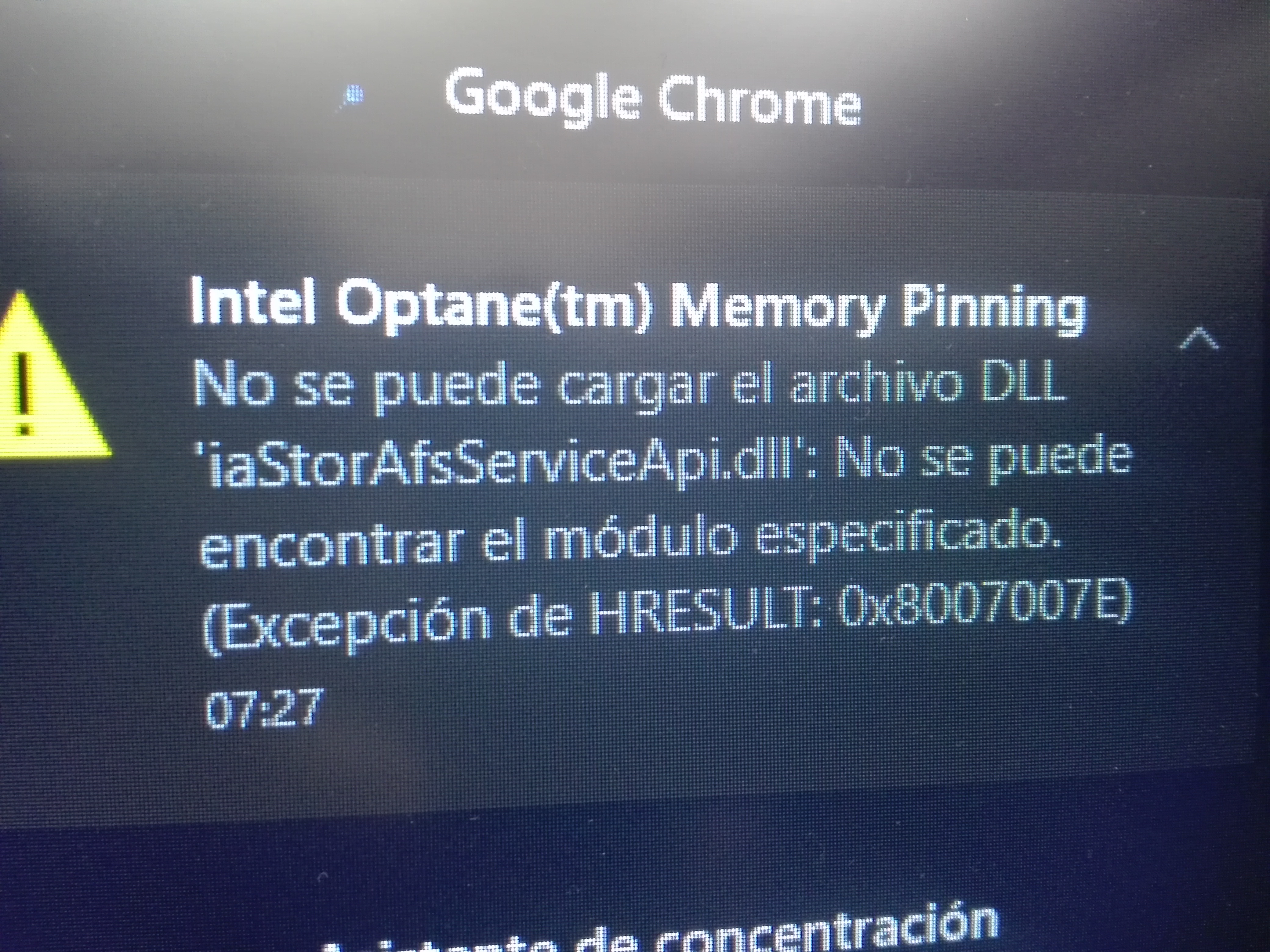Hresult 0x8007007e
Symptoms:
Rescan, see if it works. There is a lot of hits for 0x8007007E surrounding Windows Update and corruption of files (many around WMI, which SW uses) during the process. Microsoft's suggestions are to re-install the service pack or a work around by replacing the Dpcdll.dll file file and registering it again. I don't know what Dpcdll.dll does. 2.1 HRESULT.; 4 minutes to read; In this article. The HRESULT numbering space is vendor-extensible. Vendors can supply their own values for this field, as long as the C bit (0x20000000) is set, indicating it is a customer code. How to solve HRESULT: 0x8007007E problem? You use Visual Studio 2010 2. You create a Visual C# / Windows Application 3. You add reference to a.NET assembly like C: Program Files Nuance OPCaptureSDK19 Bin64 CAPIPInvoke.dll 4. In your project you call a function from the referenced.NET assmebly, e.g. Disable Third-party Antivirus Programs and Windows Firewall. Normally, you shouldn't disable. (Exception from HRESULT: 0x8007007E)'. The member method I try to enter is declared unsafe because it deals with unmanaged C code, but like I said I can never step into the method anyways.
- you use Visual Studio 2010
2. you create a Visual C# / Windows Application
3. you add reference to a .NET assembly like C:Program FilesNuanceOPCaptureSDK19Bin64CAPI_PInvoke.dll
4. in your project you call a function from the referenced .NET assmebly, e.g. RecAPI.kRecInit()
5. you compile the project, it compiles without an error, and you try to run it
At this point you get an error:
System.DllNotFoundException was unhandled

Message='Unable to load DLL 'KernelAPI.dll': The specified module could not be found. (Exception from HRESULT: 0x8007007E)'
This actually means that your application has found KernelAPI.dll, otherwise the error would be 'cannot find...'.
But even though your application is able for find KerneAPI.dll, it is not able to load it, because there are dependent DLLs, which your application cannot find.
The solution of this problem is not specific to our SDK. It is documented in Windows web pages what you can do in such a case.
Here are some examples for your convenience:
- you can place your application exe in the same folder with the Engine binaries, or
- you can add the Engine binaries folder to the PATH environment variable of your system,
- if you are using .NET then
- you can create a proper .config file for your application referencing the Engine binaries
- you can register CAPI_PInvoke.dll in GAC
Note:
- there are other methods to eliminate this problem, all in all the main purpose is that your application should be able to find not only the KernelAPI.dll, but all other ENGine binaries as well.
- in the above example Visual Studio 2010 and OPCaptureSDK19 are mentioned, but they can be replaced by any other version of VS and OP SDK
-->This article provides a resolution for the problem that occurs when you try to copy content to Microsoft Azure by using a Java-based tool or program.
Original product version: Data Factory
Original KB number: 4497239
Symptoms
When you try to copy content to Microsoft Azure by using a Java-based tool or program (for example, copying ORC or Parquet format files), you receive an error message that resembles the following:

ErrorCode=UserErrorJreNotFound,'Type=Microsoft.DataTransfer.Common.Shared.HybridDeliveryException,Message=Java Runtime Environment is not found. Go to http://go.microsoft.com/fwlink/?LinkId=808605 to download and install on your Integration Runtime (Self-hosted) node machine. Note 64-bit Integration Runtime requires 64-bit JRE and 32-bit Integration Runtime requires 32-bit JRE.,Source=Microsoft.DataTransfer.Common,'Type=System.DllNotFoundException,Message=Unable to load DLL 'jvm.dll': The specified module could not be found. (Exception from HRESULT: 0x8007007E),Source=Microsoft.DataTransfer.Richfile.HiveOrcBridge
Cause
This issue occurs for either of the following reasons:
Java Runtime Environment (JRE) isn't installed correctly on your Integration Runtime server.
Your Integration Runtime server lacks the required dependency for JRE.
Hresult 0x8007007e
By default, Integration Runtime resolves the JRE path by using registry entries. Those entries should be automatically set during JRE installation.
Resolution
Follow the steps in this section carefully. Serious problems might occur if you modify the registry incorrectly. Before you modify it, back up the registry for restoration in case problems occur.
To fix this issue, follow these steps to verify the status of the JRE installation:
Make sure that Integration Runtime (Diahost.exe) and JRE are installed on the same platform. Check the following conditions:
64-bit JRE for 64-bit ADF Integration Runtime should be installed in the folder:
C:Program FilesJavaNote
The folder is not
C:Program Files (x86)JavaJRE 7 and JRE 8 are both compatible for this copy activity. JRE 6 and v ersions that are earlier than JRE 6 have not been validated for this use.
Check the registry for the appropriate settings. To do this, follow these steps:
In the Run menu, type Regedit, and then press Enter.
In the navigation pane, locate the following subkey:
HKEY_LOCAL_MACHINESOFTWAREJavaSoftJava Runtime Environment.In the Details pane, there should be a Current Version entry that shows the JRE version (for example, 1.8).
In the navigation pane, locate a subkey that is an exact match for the version (for example 1.8) under the JRE folder. In the details pane, there should be a JavaHome entry. The value of this entry is the JRE installation path.
Locate the binserver folder in the following path:
C:Program FilesJavajre1.8.0_74Check whether this folder contains a jvm.dll file. If it does not, check for the file in the
binclientfolder.
Exception Hresult 0x8007007e
Note
Hresult 0x80070002 Windows 10
If any of these configurations are not as described in these steps, use the JRE windows installer to fix the problems.
If all the configurations in these steps are correct as described, there may be a VC++ runtime library missing in the system. You can fix this problem by installing the VC++ 2010 Redistributable Package:
For 32-bit
For 64-bit